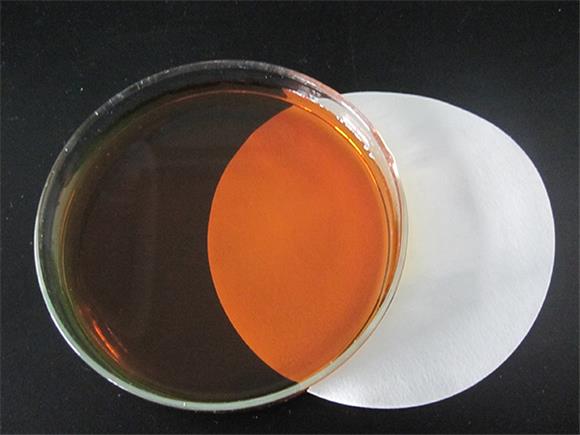
News
Srp . 29, 2024 22:00 Back to list
custom copper chelating agent
Custom Copper Chelating Agents Enhancing Metal Ion Management
Copper is an essential trace element in biological systems, playing crucial roles in enzymatic reactions, energy production, and the maintenance of normal physiological functions. However, when copper levels exceed physiological thresholds, it can lead to toxicity and various adverse health effects. This dual nature of copper necessitates effective management practices, particularly the use of copper chelating agents. Custom copper chelating agents are emerging as vital tools in both industrial and medical applications, offering tailored solutions to control copper availability and mitigate its negative impacts.
Chelating agents are molecules that can bind to metal ions like copper, forming stable complexes that can be easily excreted from the body or removed from solutions in industrial processes. Custom chelating agents are designed to meet specific requirements, such as solubility, binding affinity, and biodegradability, making them ideal for various applications ranging from agriculture to wastewater treatment and medical therapies.
In industrial settings, excessive copper can contaminate water supplies and pose significant environmental challenges. Custom copper chelating agents can be utilized to precipitate copper ions from wastewater, facilitating their removal and preventing ecosystem disruption. These agents can be engineered to selectively target copper over other metals, ensuring that the cleaning process is efficient and minimizes adverse reactions with other components in the environment.
custom copper chelating agent

In the medical realm, custom copper chelators are being developed for the treatment of copper overload conditions, such as Wilson's disease and certain types of liver dysfunction. These agents can be tailored to enhance their physiological compatibility and minimize side effects, making treatment safer and more effective. For instance, agents like penicillamine and trientine have been used for systemic copper removal, but custom formulations can provide better solubility and bioavailability, improving therapeutic outcomes.
The design of custom copper chelating agents involves a multidisciplinary approach, combining chemistry, biochemistry, and environmental science. Researchers are exploring the use of advanced materials like nanomaterials and biodegradable polymers to create chelators with enhanced performance characteristics. This innovation holds the potential to improve the specificity and binding strength of chelators, ensuring that they effectively manage copper levels without adversely impacting other essential metals in the body.
In summary, custom copper chelating agents represent a promising advancement in the management of copper-related issues across various sectors. By tailoring these agents to meet specific needs, industries and healthcare providers can address the challenges posed by both copper deficiency and toxicity. As research continues to evolve in this field, the development of novel chelators will likely play a critical role in promoting environmental sustainability and improving human health outcomes related to copper exposure. The future looks bright for innovative solutions in metal ion management, paving the way for safer and more efficient practices in handling this essential yet potentially hazardous element.
-
Polyaspartic Acid Salts in Agricultural Fertilizers: A Sustainable Solution
NewsJul.21,2025
-
OEM Chelating Agent Preservative Supplier & Manufacturer High-Quality Customized Solutions
NewsJul.08,2025
-
OEM Potassium Chelating Agent Manufacturer - Custom Potassium Oxalate & Citrate Solutions
NewsJul.08,2025
-
OEM Pentasodium DTPA Chelating Agent Supplier & Manufacturer High Purity & Cost-Effective Solutions
NewsJul.08,2025
-
High-Efficiency Chelated Trace Elements Fertilizer Bulk Supplier & Manufacturer Quotes
NewsJul.07,2025
-
High Quality K Formation for a Chelating Agent – Reliable Manufacturer & Supplier
NewsJul.07,2025
